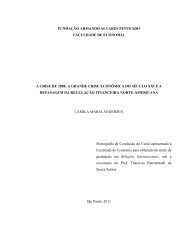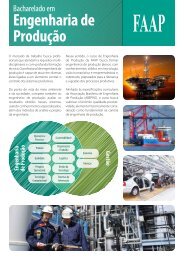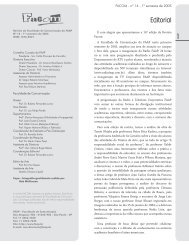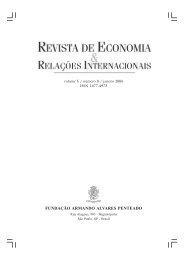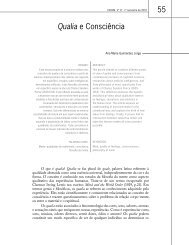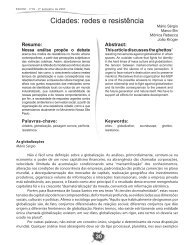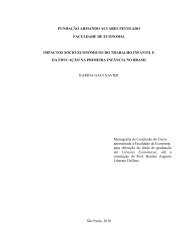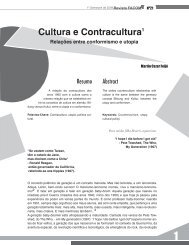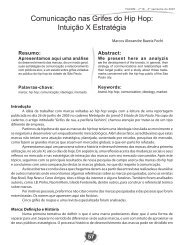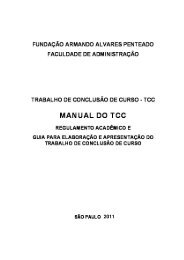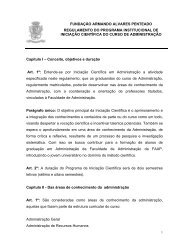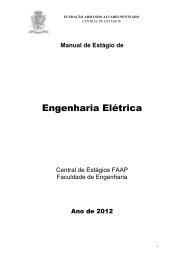Edição Especial - Faap
Edição Especial - Faap
Edição Especial - Faap
Create successful ePaper yourself
Turn your PDF publications into a flip-book with our unique Google optimized e-Paper software.
egardless how we call it, they were also a way of dealing with circumstances<br />
that were quite different from those prevailing in the past.<br />
As such, they are part of a process that evolved over time. Players, from<br />
issuers to creditors as well as international organizations and other actors,<br />
including legal bodies had to proceed according to what they deemed best fit<br />
to those circumstances. It is also worthwhile noticing that the process that I was<br />
referring to, does not seem to have crystallized; therefore, we should expect<br />
more changes to come. Nevertheless, in this presentation I will try to identify<br />
some previously prevailing modalities that shaped behaviors, which merit major<br />
revision in light of the current circumstances that were quite clearly exposed in<br />
the Argentine exchange and finalize with a brief comment about shaping up the<br />
agenda that follows those thoughts.<br />
Role of international financial organizations<br />
The first topic is referred to the role of the International Monetary Fund<br />
(IMF). In the previous debt exercises, it was stressed that the international<br />
financing organizations (IFIs), particularly the IMF, would play a catalytic role.<br />
This would result from some combination of factors, such as the assessment<br />
they would make of the economic situation and the remedies taken to<br />
overcome what was viewed as a difficult situation, but moreover how they<br />
would line up financial resources that would also help to mobilize creditors,<br />
debtor as well as certain other authorities to increase chances of success of a<br />
difficult coordination exercise. For instance, if deemed appropriate, the IMF<br />
would disburse given amounts of money when certain conditions were met.<br />
Some requirements were tied to economic measures, other to certain actions to<br />
be carried out by debtors and/or creditors.<br />
In the recent experience under consideration, and apart from the<br />
reputational aspects affecting the IMF or possible differences of opinion on<br />
domestic policy issues at a time when economic recovery was underway, the<br />
role played by the IMF was influenced as well by a potential conflict of interest<br />
between that organization as an already existing creditor and the others. The<br />
IMF claimed its some sort of de facto preferred creditor status. To the extent<br />
that the debtor could only devote a limited amount of resources over time to<br />
service its obligations, the more and/or faster the IMF would collect its own<br />
claims would be perceived as at the expense of the other creditors. In this case,<br />
the IMF stayed away from the design or explicit endorsement of a multi-year<br />
financial program that would recognize their status and would potentially put<br />
it in an uncomfortable position confronted with other parties. Regular<br />
creditors, on the other hand, did not organize themselves to deal effectively<br />
with this particular subject.<br />
Another aspect is that the link among the parties that existed in the past<br />
was no longer there. Previously creditors were basically commercial banks that<br />
were usually supervised by the same authorities that were represented in the<br />
IMF’s board of directors, which also had the borrowing country as a member.<br />
That shared forum helped to create more cooperative ways between acting<br />
158<br />
Revista de Economia & Relações Internacionais, vol.5(edição especial), 2006




